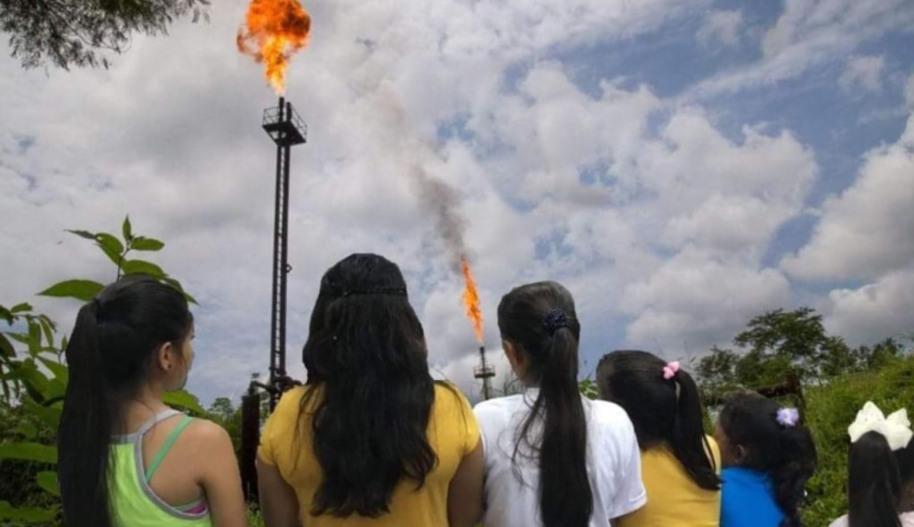Two months have passed since an explosion occurred outside the home of 14-year-old climate activist Leonela Moncayo and her family. Yet, authorities have not conducted an effective investigation into the incident. Furthermore, they have conditioned the protection of Leonela, eight other girls, and their families on the stop of their activism. We urge Ecuadorian authorities to thoroughly investigate the explosion and provide protection for Leonela and the others without imposing such conditions.
Here’s what you can do:
Write to the Attorney General of Ecuador urging her to:
- To conduct an effective, independent and impartial investigation what happened to Leonela and her family.
- Provide protection without conditions for Leonela, the eight climate activists and their families. This group of girls and their families are leaders in the fight against climate change.
Write to:
Ms. Diana Salazar
General Attorney of Ecuador
Juan León Mera N19-36 y Av. Patria,
Edificio Fiscalía General del Estado Quito
Quito, Ecuador
Email: despacho@fiscalia.gob.ec / mogollonf@fiscalia.gob.ec
X (Twitter): @DianaSalazarM2
And copy:
His Excellency Carlos Alberto Patricio Jativa Naranjo
Ambassador
Embassy of the Republic of Ecuador
99 Bank Street, Suite 230
Ottawa, ON K1P 6B9
Tel: (613) 563-8206
Leonela Moncayo: Young activist at the forefront of environmental justice
Leonela Moncayo is a 14-year-old climate activist from the Ecuadorian Amazon and the daughter of human rights defenders Donald Moncayo and Silvia Lorena Ordoñez Zambrano, associated with the strategic litigation group “Unión de Afectados por Texaco” (UDAPT).
Leonela is part of a group of Amazonian girls who, alongside UDAPT, secured a landmark ruling against the routine gas flaring practices in Sucumbíos and Orellana provinces. These practices are significant contributors to the climate crisis due to their methane emissions—a potent greenhouse gas—linked with negative health impacts on fence line communities.
Judicial outcomes and government compliance
On July 29, 2021, the Provincial Court of Justice of Sucumbíos ruled that the Ecuadorian State had neglected the right to a healthy environment and failed in its duties to mitigate climate change and protect public health.
The court mandated the gradual cessation of gas flaring, particularly near populated areas, and called for reparations for affected communities.
However, compliance has been limited to public apologies and minor regulatory updates, with no significant environmental remediation or health reparations initiated.
Escalation and international attention
Following an intimidation incident on February 26, believed to be linked to their activism, Leonela and other plaintiffs attended a National Assembly session on February 21, 2024, to challenge the authorities’ claims of compliance with the court ruling.
The Energy Minister’s remarks during the session minimized the activists’ concerns and suggested the girls were being manipulated. In response, the activists refuted these claims, highlighted the increase in gas flares, and expressed their frustration over the lack of substantial action.
Amnesty International reported that the local prosecution is investigating an attack on Leonela and her family, offering them protection under the condition of silencing their activism.
This condition contravenes international human rights obligations, which emphasize the state’s duty to protect human rights defenders and enable their work without interference.
Need for enhanced protection and compliance
The case of Leonela Moncayo underscores the ongoing challenges faced by environmental defenders in Ecuador. It highlights the need for the state to fulfill its international obligations by providing a safe environment for human rights defenders, especially those advocating for land, territory, and environmental rights.
The international community, including bodies like the Interamerican Commission of Human Rights and frameworks such as the Escazú Agreement, advocate for stronger protections to ensure that defenders can pursue their activities without facing retaliation or restrictions.
Please take action as soon as possible until July 31, 2024! The UA will be duly updated should there be the need for further action.













